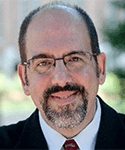I arrived at the restaurant just after 7. To the left was the dining area and to the right was “the lounge.” I veered right. The email said to look for a guy with glasses and a beard at a table in the back. With a few business people and small clusters of friends talking quietly on this Tuesday night, it wasn’t crowded, so I didn’t have trouble finding my contact. Lawrence was wearing a black “RAMONES” T-shirt and sitting with two other men at a small table.
“Hey, man,” he said and stood up to shake my hand. He smiled at me. “Is it Hur-ar-doe?”
“Actually, it’s Jer-rahr-doe, thanks. Nice meeting you.”
After being introduced to the others, I took a seat as a waitress set down three beers. She asked if I wanted a drink and I said I’d start with water. The guys continued their conversation, talking about their jobs, pressures with classes, travel plans, and family issues. They seemed to have known each other for awhile. Soon two more people came, a guy and a girl, greeted warmly, and then another girl who was a “guest” like me. Lawrence eventually looked at his watch.
“Well, I guess we should get started.”
Lawrence brought out a book from his messenger bag. It turned out that one of Lawrence’s friends seated at the table was an author I didn’t recognize. He had written a new book, and Lawrence was glad to have him come to discuss it. For the next hour we launched into a broad ranging discussion on personal relationships, the church, world history, a few Bible references, and a smattering of other topics in a haphazard, round robin fashion. Everyone contributed. Stories were told, and personal experiences shared. Even the new girl, Sarah, got to talking about how she was “in transition” with her faith, moved to the area six months ago, bounced from church to church, and was trying to find people with whom to connect. She appreciated the conversation, and said so several times.
This was my first experience of the Pub Church, broadly defined as spiritual discussions held in “open spaces” like bars, pubs, coffeehouses, and restaurants. It is a way of doing “church” that is non-churchlike. Some gatherings are an extension of an existing church ministry, but often Pub Churches are non-sponsored assemblies. They are largely untracked by survey researchers or denominational consultants. Pub Churches are not obvious, as there are no hymns or liturgy, and no tithing takes place. There is no push for giving, volunteering, or even responding. Instead, beer loosens the tongue in an effort to promote conversation about matters of life and faith.
Some may see Pub Church as just another gimmick. But those who promote these gatherings see the pub as a better setting than institutional church services or programmed Bible Studies for asking the most important questions about life, death, god, and what it means to be human.
The practice of Pub Church carries a “buzz” in emerging church movement circles, which promote it as a viable organizational form in both the U.K. and U.S.A. Organizers of Pub Churches intend to shake mainstream Christianity out of its so-ordinary, so-familiar, and oh-so-relevant orientation to create a fresh and distinctly unformulaic response to the Spirit. Those who participate in Pub Churches see them as an escape from churchy atmospherics and a refuge for open discussion centered in an unpretentious, egalitarian, and spiritually neutral space. The leader is a facilitator, and everyone has the opportunity to share without the obligation. Spontaneity is valued; not the spontaneity of Spirit manifestations in prophecies or supernatural ecstatic actions but rather an unforced, free response of individuals toward each other, toward God, and toward one’s own self. What Pub Church organizers most reject is an authoritarian, dictatorial stance toward leadership. They seek to minimize exploitation, maximize authentic relationship, and achieve humane fulfillment of religious values without violence or victimization.
Although the long-term sustainability of Pub Churches is uncertain, the variety of such gatherings creates an experimental, entrepreneurial dynamic. They have no overhead, they require no official ordination for leadership, and can be initiated by almost anyone. As long as there are committed Christians who side-step existing Church structures while valuing ecclesially-tinged social gatherings, the viability of the Pub Church format will remain with us for some time.
Gerardo Marti is L. Richardson King Associate Professor of Sociology at Davidson College in Davidson, North Carolina, and is author of "Hollywood Faith: Holiness, Prosperity, and Ambition in a Los Angeles Church" and "A Mosaic of Believers: Diversity and Innovation in a Multiethnic Church."







